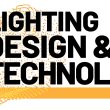Light Sources – European Commission is a crucial aspect of energy efficiency, and the European Commission has taken significant steps to promote sustainable lighting solutions. According to the European Product Registry for Energy Labelling, the EU has implemented a range of measures to reduce energy consumption and carbon emissions from lighting products.
The EU’s energy efficiency policy aims to reduce energy consumption by 20% by 2020, and lighting is a key area of focus. The European Commission has introduced a series of regulations and standards to promote the use of energy-efficient lighting products, such as LED bulbs and smart lighting systems.
One of the key challenges facing the lighting industry is the need to balance energy efficiency with other factors such as cost, quality, and aesthetics. The European Commission has worked closely with industry stakeholders to develop solutions that meet these competing demands.
Another important aspect of the EU’s energy efficiency policy is the promotion of sustainable lighting solutions. The European Commission has launched a range of initiatives to encourage the use of renewable energy sources, such as solar power and wind energy, to power lighting systems.
The EU’s energy efficiency policy has also had a significant impact on the lighting industry, with many companies investing in research and development to create more energy-efficient products. The European Commission has provided funding and support to companies to help them develop new technologies and products.
Overall, the EU’s energy efficiency policy has had a significant impact on the lighting industry, promoting the use of sustainable lighting solutions and reducing energy consumption and carbon emissions. The European Commission’s efforts have helped to create a more sustainable and energy-efficient lighting industry, and have set an example for other countries to follow.
The European Commission’s energy efficiency policy has been widely praised for its effectiveness in reducing energy consumption and carbon emissions.
As the world continues to grapple with the challenges of climate change, the importance of sustainable lighting solutions cannot be overstated. The European Commission’s energy efficiency policy has shown that it is possible to reduce energy consumption and carbon emissions while still meeting the needs of consumers and businesses.
The EU’s energy efficiency policy has also had a significant impact on the environment, with many companies investing in sustainable lighting solutions to reduce their carbon footprint.
In conclusion, the EU’s energy efficiency policy has had a significant impact on the lighting industry, promoting the use of sustainable lighting solutions and reducing energy consumption and carbon emissions. The European Commission’s efforts have helped to create a more sustainable and energy-efficient lighting industry, and have set an example for other countries to follow.









